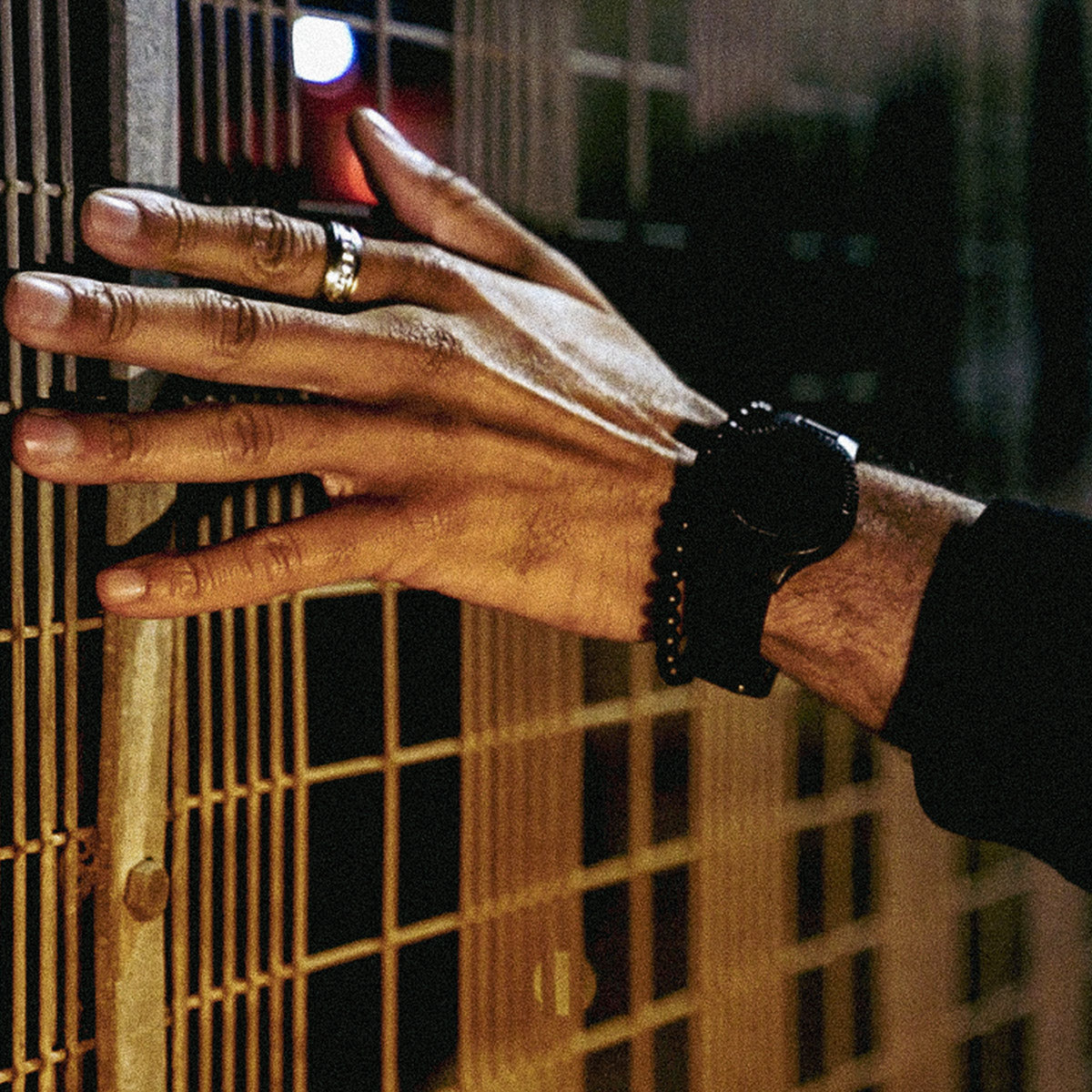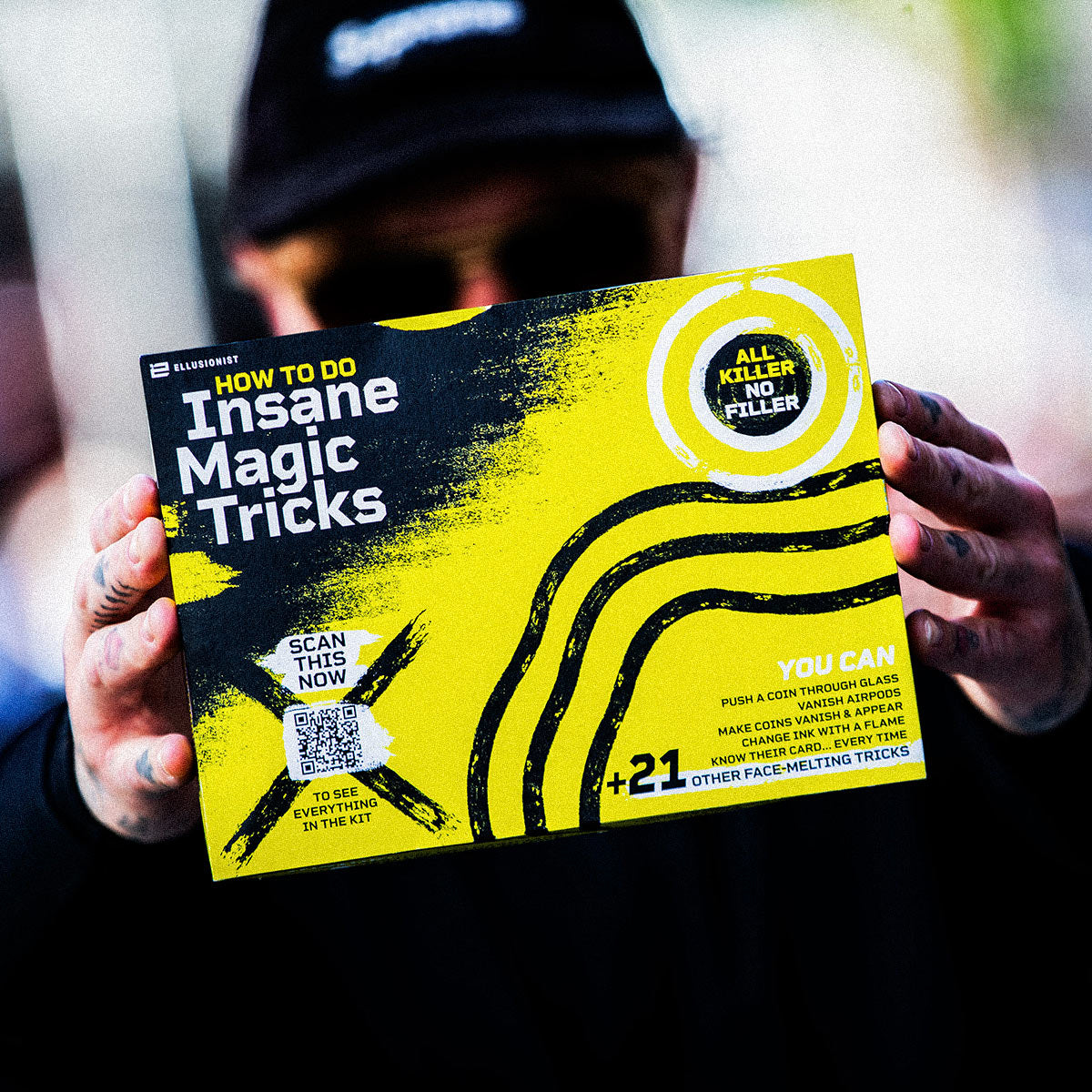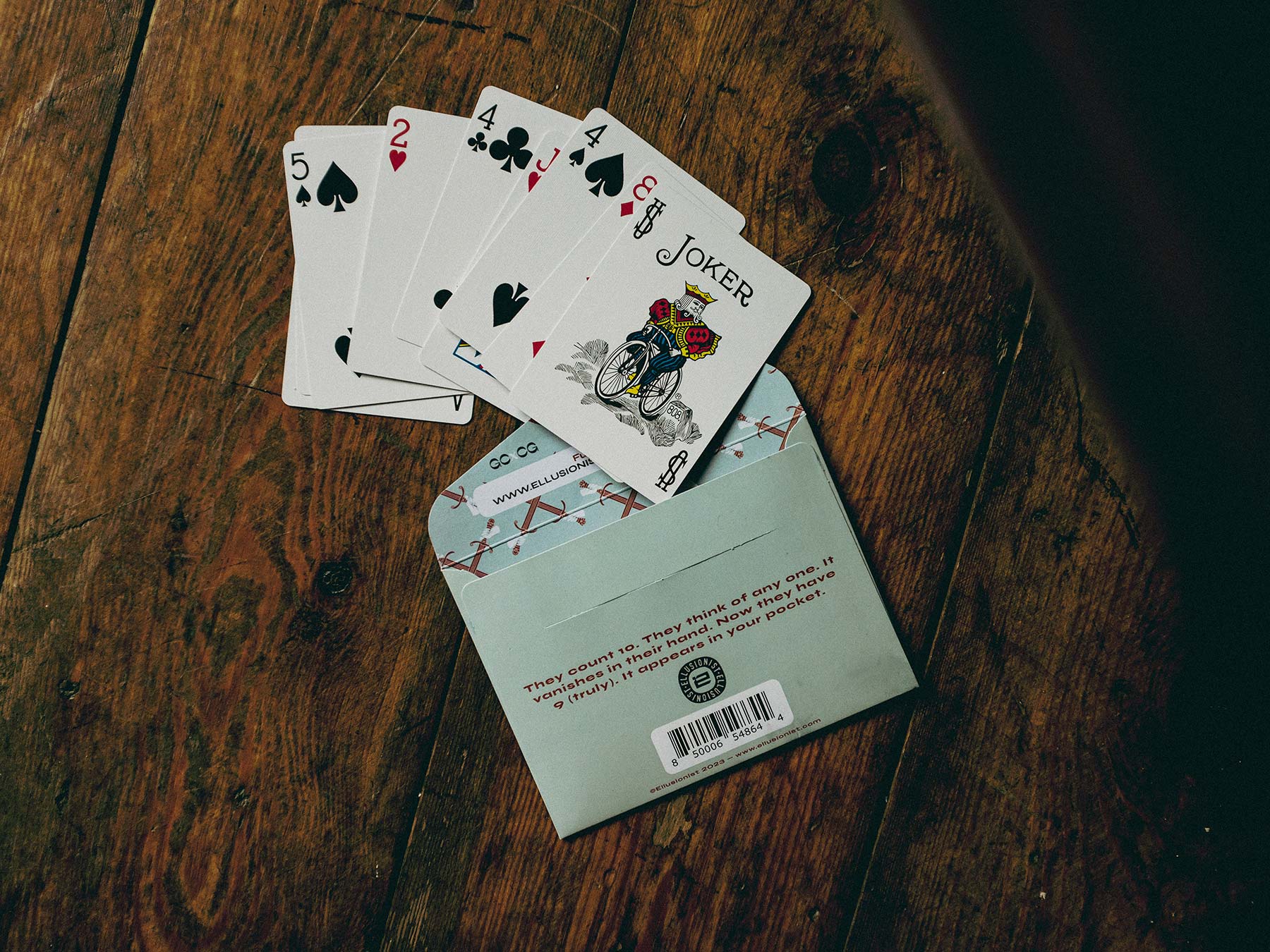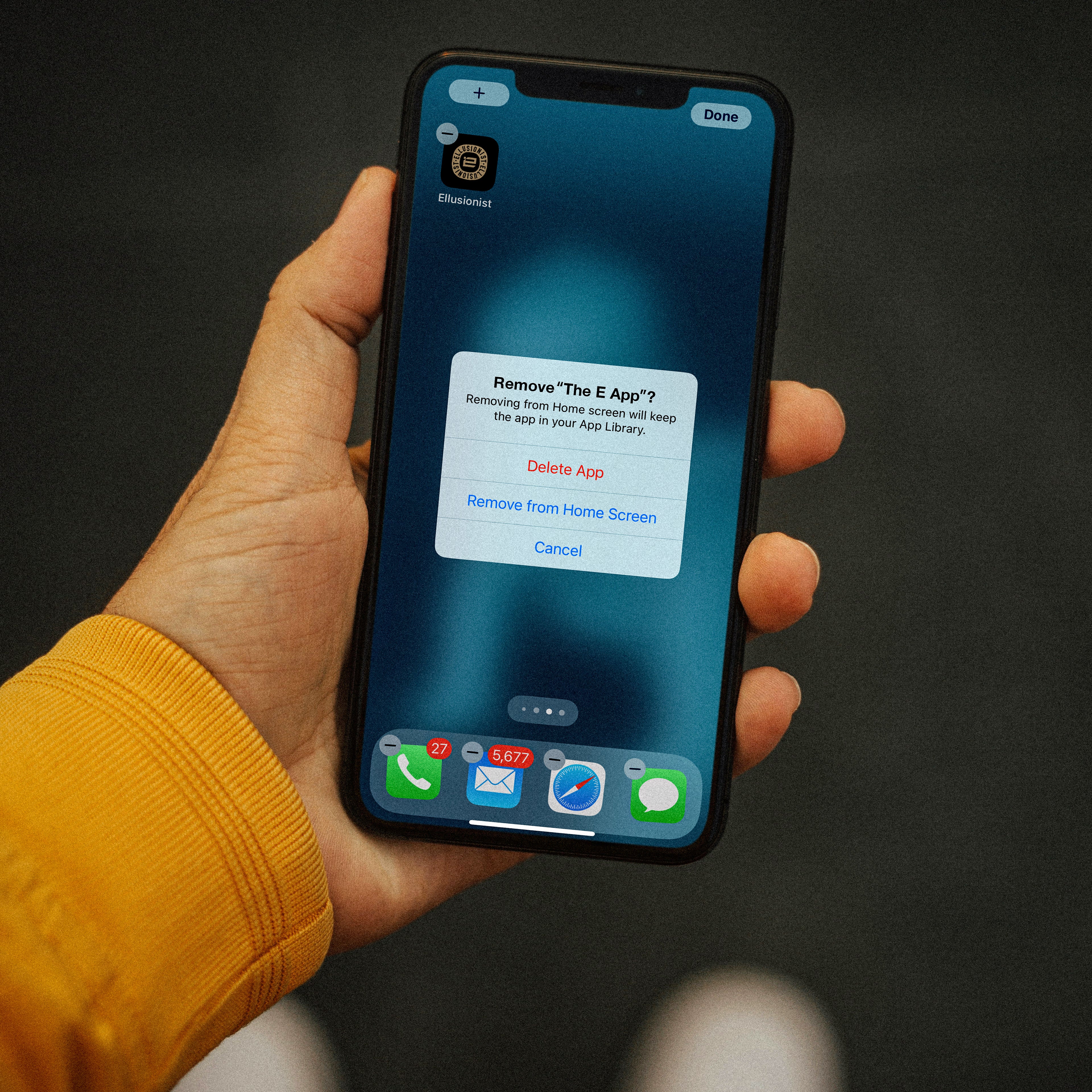Have you ever been disappointed in a method? I have.
So I decided to go one layer deeper and figure out WHY I had those feelings.
These could be the reasons why…
#1 - It’s too easy
Translation: “I paid too much for this.”
If you are disappointed in a method for being too easy, it means you’re disappointed you paid that much for ‘that’ method.
The negative feeling comes from the fact that you placed all of the value in the method - and not what the method can help you achieve.
The Solution
Change your perspective here and you’ll be a lot happier with everything you buy.
Instead, you want to place the ‘value’ in the effect the method produces, not the method itself.
That’s why trailers showing great reactions sell better.
The value is in the reactions that you can get from executing the method.
So it’s no surprise that the people who like a trick the least - are the people who never perform it.
By simply performing it, you’re harvesting the true value of your purchase.
The more often you perform that trick, the more valuable the purchase becomes.
#2 - It’s just a top change/other popular method
Translation: “I kinda knew this method already and am disappointed that it fooled me, because if I’d known I could have saved $20”
Sometimes you buy a trick because you were intrigued by the presentation or fooled by the effect - then, you receive it and sink when the method is something that you kinda know.
A lot of people rush to be disappointed or angry, but you’re thinking about it all wrong.
The Solution
The method is like the base in a cocktail. It’s whiskey, but depending on how it’s used or paired, it can taste completely different… Just like a magic trick.
Instead, knowing the method is actually a win for you.
It means you have to learn less, or less to practice - as you’re already familiar with the ‘how’ part of the routine.
Your time can then be spent on refining the presentation, which will be new to you, because it helped fool you with a method you already knew.
I’ve noticed for years that I can fool magicians with something and they are desperate to know ‘how’.
Then I put them out of their misery and say “it’s a duplicate card” - and because they’re familiar with that gimmick they go “Oh okay then.”
They have zero enthusiasm, after the method is revealed. Because they kinda knew it and were looking for something newer.
But 10 seconds earlier, before they knew, they would have given me their left kidney to learn it.
That’s not a method problem, that’s a perspective problem.
#3 - It’s too hard
Translation: “I don’t have the time to practice this.”
And that’s okay. Life is busy… I get it. I’m busy too.
But it’s not a disappointing method or a sh*t trick because you can’t put the time and effort in that it requires.
For those with health & mobility issues in their hands, saying "the method is too hard" may be a legitimate criticism based on their restrictions, but for everyone else it’s simply about where you allocate your time.
The Solution
It can be broken down into 2 solutions. Buy less or make more time.-
Buy less tricks. Spend more time practicing only the tricks you know you’ll use.
- Watch less TV. Spend more time practicing & improving your skills.
Magic attracts a lot of older gentlemen for this reason, their kids have grown up and take less attention, they may also be slowing down in work or retired. So they can buy more magic, because they have time to experiment and practice with it.
And a lot of young adults drop out of magic when they have young children or get a new, demanding job.
I remember learning the clipshift as a teenager, sitting in my parent's garden for hours practicing it. I had a part-time job, no kids or bills. So I DID have time to put into that method.
But I can see how some people don't have time... and as a 34-year old adult, I probably wouldn't allocate my time to learning it now.
Not because it's a bad method, it's great - but because I'd choose to spend my time elsewhere.
#4 - It’s not practical
Translation: “the method doesn’t fit my preferences.”
Maybe it’s sleeving. Sleeving isn’t impracticable by nature, but it is if you choose to perform in a short sleeve t-shirt. The choice of clothing is your preference.
Smoke devices aren’t impractical - but they are if you’re not on a stage (like Shin Lim) and need to go to the office and work all day with it hooked up under your arm. Being comfortable is your preference.
Flap cards aren’t impractical - but they are to people who don’t want to carry too many gimmicks, or like to be free and loose with their deck during performance.
All methods have restrictions based on your individual preferences. This is what gives that feeling of disappointment in some methods. Because it doesn’t slot perfectly into your style or environment.
$600 peek pads like ‘Smart Memo Pad’ are totally worth it for people who perform shows, but maybe not for hobbyists who have full-time ‘normal’ jobs, it’s not practical to carry around with you all day, every day on the off-chance you may perform once.
So is it the method that’s terrible? No.
It’s just that not all methods can suit everyone’s individual restrictions.
#5 - Pointless Method
Translation: "This is a different method for the sake of having a 'new' method."
This one is the fault of the magic industry. It’s okay to be disappointed in the method, when it’s clearly been conceived to sell something inferior to its predecessor.
If a trick comes out with the same plot, but it doesn't 'add' anything new compared to previous methods for that same plot, then it's a pointless release.
For example. It's a packet trick but instead of a 'glide' it uses a second deal.
Another example, it's a torn & restored card trick, but instead of horizontal tears, it's vertical.
Often this happens when 2 magicians have independently created the same effect and the second one rushes to put it out too, when they see someone else has had the same idea.
Or, this can happen when a trick becomes a best seller and magicians rush to create 'their' version of it to cash in on the apparent gold rush.
The solution here is to take as much as you can from each purchase, so that knowledge can inform you on your next one. Even if you don't end up performing the trick, it can teach you something.
And that may end up saving you money if something identical comes out in future.
p.s. For an example of an incredibly easy method that creates a stunning effect that everyone will be happy with, we'd recommend NOT THE 21 CARD TRICK that you can purchase here.










10 comments
Hobbyist
So I see my comment did not pass moderation because I spoke to the truth too well. Sure. These excuses are hiding the fact that magic marketing often obscures the true the nature of a trick and I’m not talking about exposure. I’m talking about an honest depiction of an effect/trick in the real world.
If you market a trick being capable of a surrounded performance and the trick is actually angle sensitive, that’s dishonest marketing. It happens all the time. But I guess this will be taken down again because here am I again speaking truth to power. I don’t appreciate the gaslighting in this blog. Just stop it.
Peter Stamp
Always great content, thanks :-)
Hobbyist
Terrible takes. The reason most of us regret purchasing magic tricks is because the trick was marketed for one audience when it’s actually for a different audience or magic style.
It’s a problem as old as magic sales itself; sellers want the most sales possible so if they can use camera angles to make it look better than the effect is, despite being disingenuous about the effect, they’ll do it. I’ve seen plenty of street magic style promos when the trick is for parlor at least. You can’t control street angles, because guess what, you’re performing without a backdrop outside. It’s the way it is and only experience can lead us to know if a trick is true to its promo video or not. The “handle your audience” response to these clearly angle sensitive tricks after learning the method, is like saying “don’t inhale when you smell smoke”. It’s already too late if you notice that someone is seeing a flash in your performance because you assumed the promo environment was suitable for the trick in practice.
The gaslighting here is atrocious. Be better Ellusionist.
John S Haynes
Deepends on your experience…,.
Michael
I can certainly see much of your efforts to “retool” our thinking based on various complaints. When I say a method isn’t practical, I mean that fits poorly with other tricks that may already form the core of my show. For instance, pocket management may preclude adding another “trick” deck in one or more places. Or perhaps one special deck doesn’t match another that must be used in the context of another trick. I believe one must almost know the method and the various caveats and limitations BEFORE purchasing, especially if the item is expensive. I’m more than happy to practice and master a technique – if the effect derived merits it!
Leave a comment
All comments are moderated before being published.
This site is protected by hCaptcha and the hCaptcha Privacy Policy and Terms of Service apply.